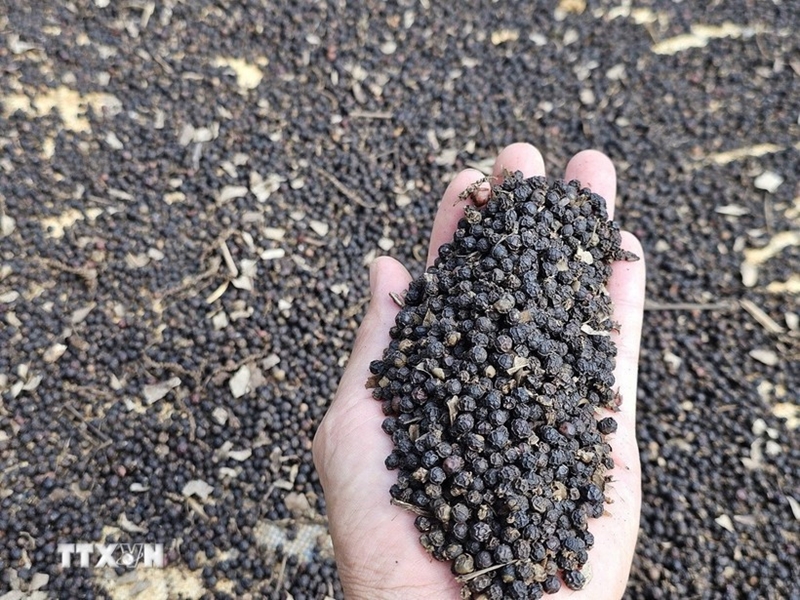The surge was driven by stable global demand and limited supply, which has kept export prices at a high level.
    |
 |
|
Vietnam earns over 1 billion USD from pepper exports in the first eight months of 2025, the highest eight-month figure in seven years. |
In August alone, Vietnam shipped 21,464 tons of pepper worth 139.8 million USD, up 2.6% in volume and 1.7% in value from July. Compared with the same month last year, export volume rose 10.6% while earnings jumped 19.5%.
From January to August, the country exported 166,510 tons of pepper of all types, including 142,627 tons of black pepper and 23,883 tons of white pepper. Despite a 9.4% decline in export volume from a year earlier, revenue rose 28% to over 1.12 billion USD, thanks to higher prices. The average export price reached 6,666 USD per ton for black pepper and 8,732 USD per ton for white pepper, up 41.5% and 38%, respectively, year-on-year.
The U.S. remained the largest buyer of the Vietnamese spice, accounting for 21.4% of the country's total pepper export value with 35,697 tons.
However, shipments to this market fell more than 31% compared to the same period last year. By contrast, exports to China rose sharply by 58% year-on-year to 13,282 tons, while sales to the United Arab Emirates and India expanded 9.7% and 13.7%, respectively.
On the import side, Vietnam purchased 34,524 tons of pepper worth 215.3 million USD in the eight months, up 61.7% in volume and 143.5% in value from a year ago. Brazil remained the largest supplier with more than 17,500 tons, followed by Cambodia and Indonesia.
Domestically, pepper prices have been on the rise since late August. Farm-gate prices climbed from 142,000-143,000 VND ( 5.4 USD) per kilogram on August 20 to 154,000-155,000 VND by early September, before stabilizing at around 152,000-153,000 VND. VPSA attributed the increase to the end of the harvest season and dwindling on-farm stocks, while exporters continue to buy to fulfil signed contracts.
Industry experts forecast that limited supply will keep prices firm in the short term, especially as Vietnamese firms reduce imports of raw pepper for re-export processing due to new U.S. reciprocal tariffs of up to 40% on transshipped goods.
Source: VNA